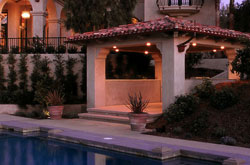Power Wash Patios Decks
Top Pros:
Power Washing Services in
Golden, CO
- Upstate Built
790 Depew St Apt B, Lakewood, CO 80214
4.96- Dapp Painting & Drywall
6323 Ross Road, Morrison, CO 80465
4.62- DSM Painting, LLC
15849 E Jamison Dr, Unit 15203, Englewood, CO 80112
4.7- M & H Painting
12789 Elm Street, Thornton, CO 80241

Power washing is one of the easiest and most effective ways to clean outdoor surfaces. But you need to know the rules of the road to get these surfaces clean without damaging them. For some surfaces, power washing should be avoided altogether for safer, albeit more time-consuming, methods. Here's what you need to know about power washing to clean your outdoor surfaces. For additional info, costs, and considerations see our cost guide here.
PSI is King
This is pounds per square inch, and knowing what pressure to use on your surfaces is, by far, the most important step for safe power washing. Dirty, stained concrete without any cracks in it should probably be hit with a minimum of 3,000 psi. Asphalt driveways should not exceed 2,200 psi; softer surfaces such as wood or stone pavers may not be able to withstand more than 1,500 psi. Of course, asphalt driveways are susceptible to tough stains just like concrete surfaces. This lower psi may not be enough to remove the stains without specially-formulated driveway cleaner and a targeted stain remover. Many pressure washers have multiple settings or nozzles that will modulate the psi for different uses.Pressure Washer Safety and Use
Point the nozzle in a safe direction when you first pull the nozzle trigger. Always keep a firm, two-handed grip on the pressure washer with some distance between the two hands, like you would hold a shovel. It's best to wear goggles and old clothing: You don't want to be worrying about getting wet, muddy, or sprayed in the face with loose debris while operating the machine.Power Washing Patios, Walkways, and Driveways
First, remove any furniture or other items on the patio, walkway, or driveway. Even nearby walking lights or potted plants may need to be moved to a safe distance. For dirtier surfaces, it's best to wet and soak the concrete with detergent beforehand. Also before you get started, take a moment to consider the best direction in which to drive away the dirt, grime, and debris. For patios adjacent to the home, for example, you don't want to wash all the dirt toward your home only to discover there's no good place to finally deposit the runoff dirt and grime.Power Washing Aids
Aside from nozzle pressure, there are certain extensions you can use to enhance the performance of a pressure washer. One type of wand extension will allow you to put the extension directly on the surface. This creates a consistent distance from the pressure washer and an evenly cleaned surface for your patio, walkway, or driveway. Other wand extensions may allow for easy mixing of cleaning solutions or otherwise increase cleaning efficiency.Beware of Power Washing other Home Surfaces
Many homeowners are aware of the danger of cleaning a wood deck with too much water pressure, but fewer people are aware of hazards associated with power washing home siding. Certain siding materials (thin vinyl, wood, brick) and older siding installations may not be able to withstand the force of a good power washing. Siding panels and other siding installations with seams are also a gamble when it comes to power washing, especially for two-story homes. Pointing a power washer nozzle upwards can send water into the seams of your siding, causing enough water to get behind the siding and decrease its life expectancy.Barry Hawker
Color Pride
www.colorpride.comMore Tips & Advice For Your Home
- Related Articles
-
- Dapp Painting & Drywall


